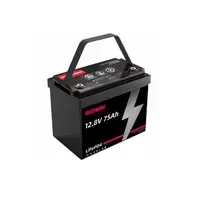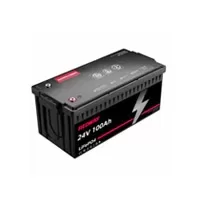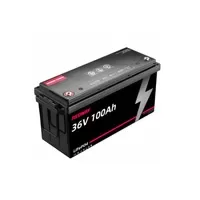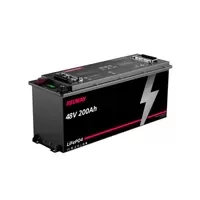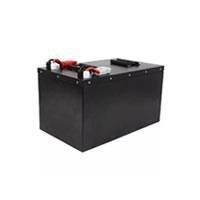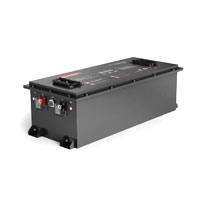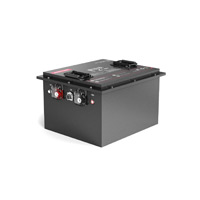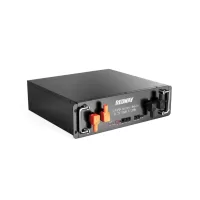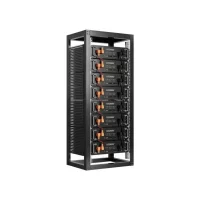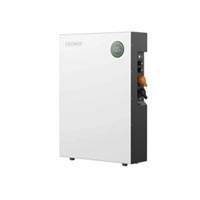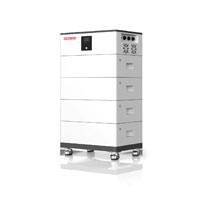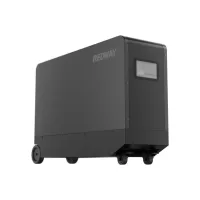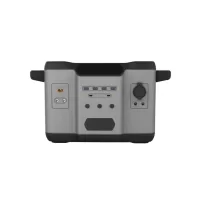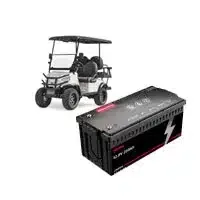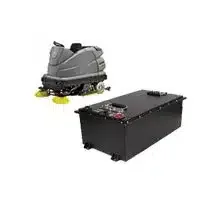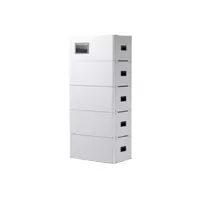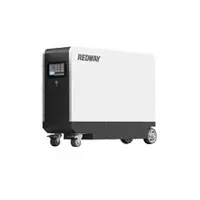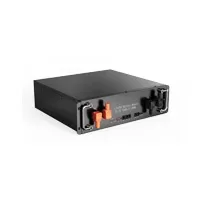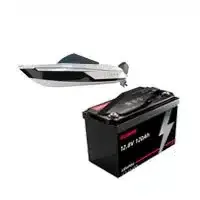(Click to Get a Quick Quote!)
Battery technology has come a long way, offering us a variety of options to power our devices and systems. Whether you’re looking to power your boat, RV, or even your home, choosing the right battery is crucial for meeting your energy needs. One common question that arises when considering batteries is whether one 200Ah battery is the same as two 100Ah batteries. In this blog post, we will explore the key differences between these options and help you decide which one suits your specific requirements. So let’s dive in and shed some light on this electrifying topic!
What is the difference between a 200Ah and two 100Ah batteries?
When it comes to batteries, the size and capacity are crucial factors to consider. In this case, we’re comparing a single 200Ah battery with two 100Ah batteries. The main difference lies in their configuration.
A single 200Ah battery is essentially one large unit, whereas two 100Ah batteries consist of separate units that can be connected together. This means that with two separate batteries, you have more flexibility in terms of placement and installation options.
In terms of capacity, both options offer a total capacity of 200Ah. However, there are some key distinctions between them. With a single 200Ah battery, you have all your power stored in one unit, which can be advantageous if space is limited or if you prefer simplicity.
On the other hand, using two separate 100Ah batteries allows for redundancy and increased reliability. If one battery fails or loses its charge prematurely due to an issue such as sulfation or internal damage, you still have another battery functioning at full capacity.
Additionally, using multiple smaller batteries can make maintenance easier since they can be individually inspected and replaced if necessary. It also provides the option for parallel charging – charging both batteries simultaneously – which may save time in certain situations.
The choice between a single 200Ah battery versus two 100Ah batteries depends on your specific needs and priorities. Factors such as available space, desired level of redundancy or backup power supply capabilities should all be taken into account when making this decision.
Pros and cons of using a single 200Ah battery vs two 100Ah batteries
When it comes to choosing between a single 200Ah battery and two 100Ah batteries, there are several factors to consider. Let’s take a look at the pros and cons of each option.
One advantage of using a single 200Ah battery is that it takes up less space. If you have limited room in your setup, opting for one larger battery can be more practical. Additionally, having just one battery means fewer connections and cables to manage.
On the other hand, using two 100Ah batteries provides increased flexibility. You can distribute the weight more evenly, making it easier to transport or install them in different locations if needed. Furthermore, with two batteries connected in parallel, you have redundancy – if one fails or needs maintenance, the other will continue powering your system.
Another consideration is cost. Generally speaking, purchasing two separate 100Ah batteries may be cheaper than buying one large 200Ah battery. However, keep in mind that this might vary depending on the brand and quality of the batteries.
Whether you choose one 200Ah battery or two 100Ah batteries depends on your specific needs and preferences. Consider factors such as available space, portability requirements, budget constraints,and backup power options when making your decision.
Remember to consult with experts or do thorough research before investing in any type of battery system for optimal performance and longevity.
Factors to consider when deciding between these options
Factors to Consider When Deciding Between These Options
When it comes to choosing between a single 200Ah battery and two 100Ah batteries, there are several factors that you should consider. One important factor is the space available in your setup. If you have limited space, opting for a single 200Ah battery may be more practical.
Another factor to consider is the weight of the batteries. Two 100Ah batteries will weigh more than a single 200Ah battery. This can be an important consideration if you need to transport or move your batteries frequently.
The charging system of your setup should also be taken into account. If your charging system is designed for multiple batteries, then using two 100Ah batteries might make more sense. On the other hand, if your charging system is optimized for a single large battery, then going with a 200Ah battery could be the better choice.
Additionally, think about how much power you actually need. Are you running high-power appliances or equipment that require continuous usage? In this case, having two separate batteries could provide redundancy and ensure uninterrupted power supply.
Budget plays a significant role in decision-making. While individual prices vary depending on brand and quality, generally speaking, purchasing one larger capacity battery tends to be more cost-effective than buying two smaller ones.
Considering these factors will help guide you toward making an informed decision based on your specific needs and circumstances
Cost comparison between a single 200Ah battery and two 100Ah batteries
When it comes to choosing the right battery for your needs, cost is always a factor that plays a crucial role in the decision-making process. In this section, we will explore the cost comparison between a single 200Ah battery and two 100Ah batteries.
Let’s look at the upfront costs. Generally, purchasing two 100Ah batteries may be slightly more expensive than buying a single 200Ah battery of similar quality. However, keep in mind that there might be additional expenses associated with connecting and maintaining two separate batteries.
Another aspect to consider is long-term cost savings. While two 100Ah batteries provide flexibility in terms of usage and can potentially last longer if one fails or loses capacity over time, it also means having more components to maintain and replace when needed. On the other hand, a single 200Ah battery simplifies maintenance efforts but could result in higher replacement costs if it fails.
It’s important to note that the overall cost comparison depends on various factors such as your specific power requirements, charging system capabilities, and expected lifespan of the batteries. Additionally, considering factors like warranty coverage and manufacturer reputation can help you make an informed decision about which option offers better value for money.
Whether you choose a single 200Ah battery or two 100Ah batteries boils down to your individual needs and priorities – both short-term affordability and long-term convenience should be considered before making a final decision.
Which option is better for your specific needs?
Determining which option is better for your specific needs depends on various factors. Consider the space available in your setup. If you have limited space or prefer a compact system, using a single 200Ah battery might be more suitable. It takes up less physical room and simplifies the wiring process.
However, if you have enough space and are looking to maximize flexibility and redundancy, two 100Ah batteries could be the way to go. With separate batteries, you have the advantage of being able to distribute them in different locations as per your convenience.
Another factor to consider is power output. A single 200Ah battery generally provides higher continuous current compared to two 100Ah batteries wired together in parallel. So, if you require a high power output consistently, a single larger capacity battery may be more efficient.
On the other hand, maintenance can play a role in decision-making too. Each individual component requires attention and care separately when using two batteries instead of one combined unit.
Cost is also an important consideration for many people. Typically, purchasing two smaller capacity batteries tends to be cheaper than buying one larger capacity battery of equivalent total ampere-hour rating.
It all boils down to understanding your specific requirements and preferences. Evaluate your available resources such as space and budget while considering factors like power output and maintenance demands before making the final decision that suits YOUR unique needs!
Tips for maintaining and prolonging the lifespan of your batteries
Tips for maintaining and prolonging the lifespan of your batteries:
1. Proper charging: Always ensure that you charge your batteries correctly. Follow the manufacturer’s guidelines and avoid overcharging or undercharging them. This will help to prevent damage and extend their overall lifespan.
2. Regular maintenance: It is important to regularly inspect your batteries for any signs of wear or corrosion. Clean them gently with a soft cloth if necessary, and tighten any loose connections. By keeping them clean and well-maintained, you can ensure optimal performance.
3. Temperature control: Extreme temperatures can have a negative impact on battery life. Avoid exposing your batteries to excessive heat or cold as it can reduce their capacity and efficiency over time.
4. Discharge cycles: Avoid deep discharges whenever possible, as they can put stress on the battery cells. Instead, aim for shallow discharges followed by regular recharging to maintain the health of your batteries.
5. Storage considerations: If you need to store your batteries for an extended period, make sure they are properly charged beforehand, and keep them in a cool, dry place away from direct sunlight.
6.
Security measures: Protect your batteries from physical damage by using suitable enclosures or cases when transporting or storing them.
By following these simple tips, you can maximize the lifespan of both 200Ah and two 100Ah batteries alike!
8
After considering the differences, pros and cons, and factors to consider between a single 200Ah battery and two 100Ah batteries, it is clear that there is no definitive answer as to which option is better. The decision ultimately depends on your specific needs and circumstances.
If you require a higher capacity for longer periods without the need for frequent recharging or if space constraints are an issue, a single 200Ah battery may be the ideal choice. On the other hand, if you prefer the flexibility of having separate batteries that can be used independently or in parallel when needed, two 100Ah batteries might be more suitable.
It’s important to note that cost can also play a significant role in your decision-making process. While purchasing two 100Ah batteries may initially seem cheaper than investing in a single 200Ah battery, you should also factor in any additional expenses such as connecting cables or parallel kits.
Regardless of whether you choose one 200Ah battery or two 100Ah batteries, proper maintenance is crucial for prolonging their lifespan. Regularly checking and maintaining appropriate charge levels, avoiding over-discharge situations, and following manufacturer guidelines will help ensure optimal performance from your batteries.
In conclusion (without using “In conclusion”), determining whether one large capacity battery or two smaller ones are right for you involves careful consideration of various factors including power requirements, available space, budgetary constraints,
and personal preferences. By weighing these considerations against your specific needs and usage patterns,
you’ll be able to make an informed decision that best suits your individual circumstances.


